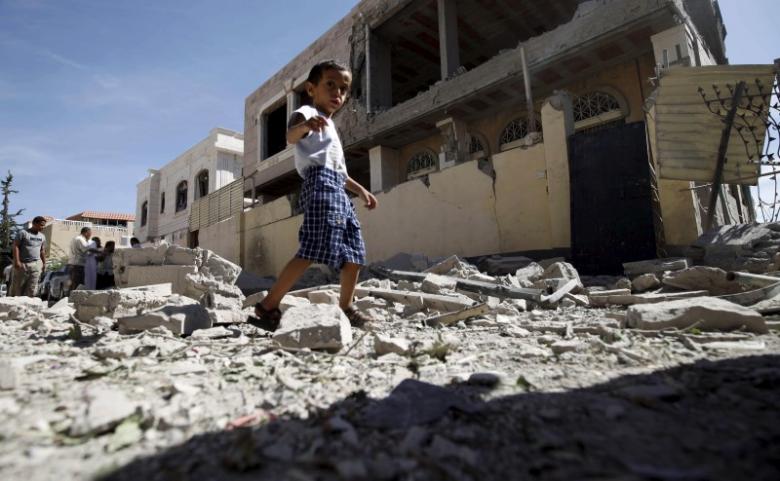It is clear from the intensified Arab coalition’s operations in Yemen that the war there has greatly shifted in their favor against the insurgents.
Coordination between Saudi-led coalition forces and the US has been restored after it was suspended during the last year of Barack Obama’s presidential term. Several raids targeted Houthi militias training camps in Saada and several Houthi locations in the Nahm front, east of Sana’a, which ended with their defeat in that rugged governorate.
According to army statements, the national army, aided by coalition’s air force, moved to Arhab, the governorate close to the capital Sana’a.
In addition, naval cooperation has thwarted three Houthi naval attacks near Midi port.
Recent reports revealed that the next attack will be decisive in this war as it will target the strategic Hodeida port, which Iranian ships use to smuggle arms to insurgents.
Following Saudi Deputy Crown Prince Mohammed bin Salman’s visit to Washington, the coalition’s position strengthened and has been enhanced. As a result of the agreements with the US, supplies of ammunition have been resumed and so did the exchange of military intelligence information on enemy positions and operations.
In addition to military results, this sends an equally important message that in Yemen, unlike Syria, there is an international agreement to eliminate the insurgents and isolate their Iranian ally, which is present in Yemen through its militias that are fighting alongside the Houthis.
Following these new military shifts, the international envoy is back in an attempt to promote the peace initiative, which is still valid and has been slightly amended by him in a hope it would close the gap between different parties.
The envoy amended the initiative based on three references: UN Resolution 2216, the Gulf initiative and the national dialogue decisions.
In addition, the successful military operations, which pressured Houthi militias affiliated with Iran, and the national army’s march against the forces loyal to ousted President Ali Abdullah Saleh, by moving into Arhab on the way to Sana’a, will help the envoy execute his plan.
This does not undermine the conflict in Yemen where the team of legitimate President Abd Rabbuh Mansur Hadi is being accused of obstructing efforts toward a political solution and of preferring the continuation of the conflict because an end to the war would cost him the presidency.
It is certain that military developments will contribute to a better understanding on how Yemen will be governed.
